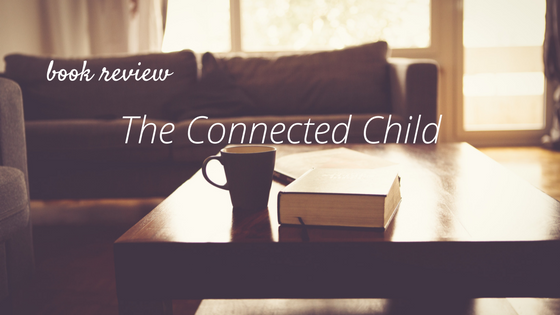
| Find on Amazon: http://amzn.to/2kVZggW |
This is a great parenting book even if all of your children came into your family biologically. While it is directed specifically at helping children who do not have strong attachments or who are not used to authority figures, it’s great for toddlers! Many of the tips are related to the Love and Logic approach, and more are just good sense parenting of children who are exhibiting defiant behaviors.
Surely I’m not the only mom whose “threenager” exhibits defiant behaviors.
I enjoyed that this book is authored from the perspective that a warm, nurturing home and simple living is best for children with any number of difficulties. The authors actually came out and said that families should strictly limit their “business” and activities outside the home so that they can focus on parenting and nurturing, unhurried and unobserved. I agree with this so much! (I should write a blog post about it.)
“Many families live at breakneck speed. they hurry to work, to day care, to civic meetings, and to social engagements. They ferry the kids from scouts to soccer to piano lessons to school and back again. the parent becomes the chauffeur with a checkbook, someone who waves good-bye in the morning and barely says hello again at night. As parents whip through these hectic days, children are expected to just tag along, absorb life lessons, and feel connected to their families. But an at-risk, attachment-challenged child just won’t get it. Adopted and foster children need lots of individualized, focused time with their parents in order to catch up developmentally and to form close and loyal family bonds… parents who are seriously committed to helping a troubled and challenged child thrive will vastly increase their odds of success by making a fundamental policy decision: to slow down their lives and put their child’s needs first. Joining the women’s league can wait for a few years; this youngster can’t.”
That. One of the most poignant paragraphs in the book, affirming what I believe to be true about family life.
This book would even be a good refresher for parents whose families are well-established. You learn something new every day! (My mother just came out of my mouth.)
Format-wise, this is a quick read. I finished it in three days because I had to return it to the library, and I’m a procrastinator. It is broken up with lots of headings within the chapters. There aren’t too many anecdotes (I don’t enjoy excessive anecdotes) but the authors did provide examples when helpful. There are also checklists and tables of information sprinkled throughout, some of which would be very useful as actual checklists.
The books ends with a chapter about the parents’ own childhood and attachment levels. This is something I’m noticing is prevalent in preparation for foster care or adoption – everyone is very concerned that you get in touch with your own childhood experiences and any emotional difficulties you might have. This chapter (the entire book, really) actually provides an encouraging perspective, and offers practical ideas for resolving or improving your personal emotional state (and your whole parenting style) rather than giving the impression that imperfect people shouldn’t parent.
Which, obviously, they should. We are all of us imperfect!
In conclusion…
10/10 Would recommend to any parent/prospective parent!
